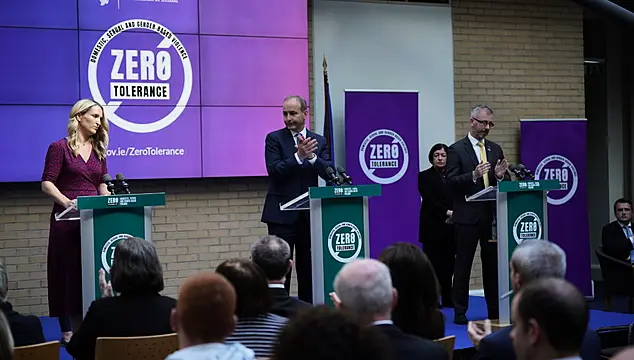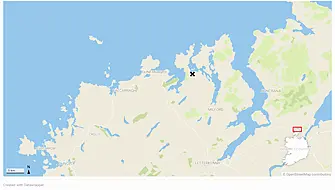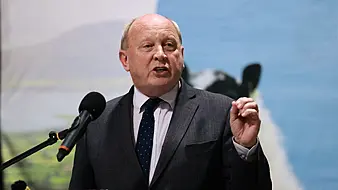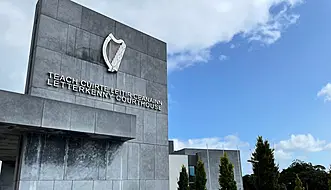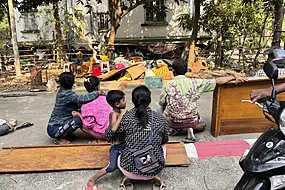The Minister for Justice is seeking to restrict children and young people’s access to porn websites as part of a “landmark” strategy to tackle domestic, sexual and gender-based violence.
Helen McEntee said pornography websites have changed the way younger people view sexual relationships, adding it is something the Government must deal with.
Ms McEntee said that while she cannot block every porn site, ministers will work with children and parents through an education and public information campaign to raise awareness of the harm of pornography.
She said pornography and the sex trade fuel misogyny and violence against women and undermine gender equality.
📝 Today Taoiseach @MichealMartinTD, Ministers @HMcEntee and @rodericogorman launched the Zero Tolerance: Domestic, Sexual and Gender-Based Violence strategy and implementation plan.
Learn more here:
🔗👉 https://t.co/hHh5hzui8f#ZeroTolerance pic.twitter.com/5leQigq1FG— Department of Justice 🇮🇪 (@DeptJusticeIRL) June 28, 2022
It is part of the €363 million strategy to tackle domestic, sexual and gender-based violence, which will include the doubling of the number of refuge spaces across the country, from 141 to 282.
The five-year strategy is based on four pillars – protection, prevention, prosecution and policy co-ordination – and contains 144 actions.
Speaking at the launch on Tuesday, Ms McEntee said that while the Government can put the strategy in place, it needs every man and woman to play their part in achieving zero tolerance of domestic and gender-based violence.
The Fine Gael minister said there is more work to be done to tackle young people’s access to porn sites.
“We have committed to establishing a working group, bringing together a number of different state actors, making sure that they have the right information and data,” Ms McEntee added.
“But also bringing together the voice of the child and this is simply to acknowledge the fact that pornography has become more violent, it has become more degrading.
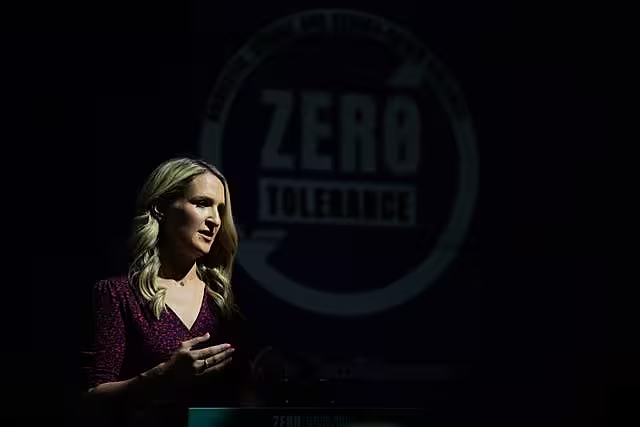
“It has changed the way that younger people view sexual relationships and it’s something that we need to deal with.
“I would love to say that we would just block every single site and not allow young people to access it, but that is simply not possible.
“Even putting in place a huge amount of measures to restrict a child or young person’s access to certain websites, working with them, supporting parents to make sure that they understand what the children are looking at.”
The plan also includes the possibility of a domestic violence register.
Ms McEntee has asked Garda Commissioner Drew Harris for gardaí to look at how a register would work and how it would be used to protect potential victims.
The plan will also increase the maximum sentence from five to 10 years for assault causing harm, one of the most common charges in cases of domestic violence.
Department of Justice officials will engage with the judiciary to consider the creation of specially trained judges for domestic, sexual and gender-based violence cases.
“We will be bringing forward a bill that will initiate the process for family judges who are specifically trained and would work specifically in family court hubs,” Ms McEntee said.
“This is expanding beyond that. So it is an area that we need to explore further and obviously the action in this commits to exploring that.”
Describing it as a “landmark” day, Ms McEntee called on the public to do more to tackle sexual and gender-based violence.
“As Minister, the Taoiseach and all of my colleagues, we can develop policy, we can put in place new laws, we can put in place a new curriculum, we can work with each and every one of you, but I can’t insert myself into the WhatsApp groups and call out the type of behaviours and cannot insert myself in every single night out where these type of incidents are happening,” she added.
We must achieve #ZeroTolerance of domestic, sexual, and gender based violence — and the attitudes which underpin it.
Working together, we must make Zero Tolerance a reality. pic.twitter.com/VCS243kXJu— Fine Gael (@FineGael) June 28, 2022
“I can’t stop the individual, unfortunately most likely a man, from picking up the phone and calling for sexual services from a woman who has possibly been trafficked, or is most likely in a very abusive situation.
“We all have a role to play here in the delivery of policy and services and the direction that we can provide.
“But it’s each and every one of us, each individual, each man, each woman, making sure that we play our part and we play a role in making sure that we achieve that overall goal, that overall objective along that journey.
“That is absolutely zero tolerance of any kind of domestic sexual and gender-based violence.”
Taoiseach Micheál Martin said there is “simply no place in society for misogyny”.
He also said the experience of each domestic and sexual violence victim is unique.
“Their circumstances are unique. Their experience is unique and the impact on them and on their life is unique,” he added.
“Because of this, their needs are unique and we must be able to respond in a way that works for each individual.
“The strategy recognises this, its guiding mission is clear. Zero tolerance of domestic sexual and gender-based violence.
“It places the individual victims and their needs at the centre.
“It will take us from a fragmented approach to a holistic and tailored one. It will build supports and processes that proactively respond to and adapt to meet the needs of each individual.”
Minister for Children Roderic O’Gorman said domestic and sexual violence do not discriminate based on race, ethnicity, religion, disability or socio-economic status.
“We recognise that domestic violence and sexual violence impacts on the lives of women and children of all backgrounds and some men,” he added.
“However, society does not treat all victims or survivors of abuse equally. That has to change.
“It’s time for zero tolerance on social biases and stereotypes that create barriers to safety to help and assistance provided for victims and survivors of domestic sexual and gender-based violence.”
Ms McEntee said 249 women have been killed in Ireland over the last 25 years, including Ashling Murphy, Jastine Valdez, Jennifer Poole, Urantsetseg Tserendorj, Ana Kriegel and Fiona Pender.
The plan will also look to reform domestic violence laws, including strengthening emergency orders, increasing powers of detention, and enacting legislation to introduce offences of stalking and non-fatal strangulation.
It will also seek to allow gardaí to wear body cameras when investigating domestic abuse cases.
The Government will also set up a statutory agency for domestic, sexual and gender-based violence by January 2024.
